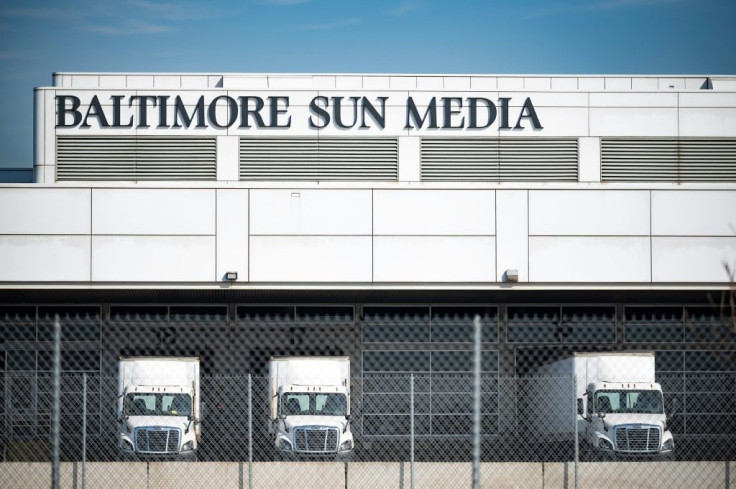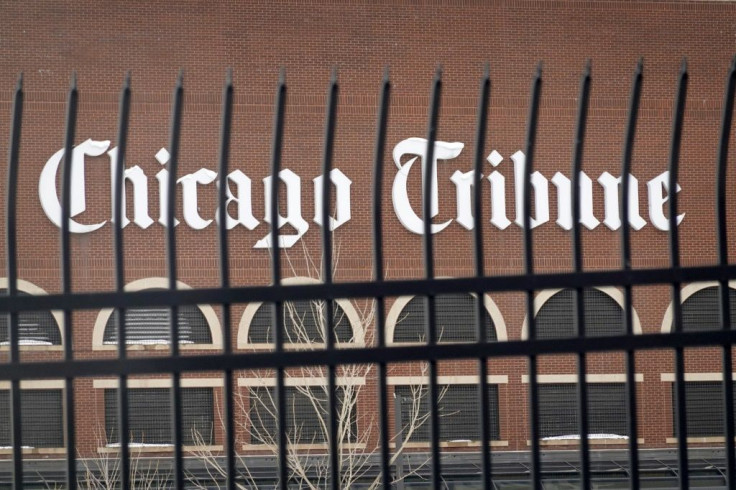After Battle, Hedge Fund Wins Tribune Publishing Newspaper Chain
A hedge fund won approval Friday after a bitter campaign to acquire Tribune Publishing and create the second-largest US newspaper chain, raising fears of deeper newsroom cuts in the troubled sector.
Tribune shareholders approved the deal to sell the group to Alden Global Capital, rejecting pleas from unions and media watchdogs who have blasted the investment group for drastic newsroom job cuts it has made at its other media properties.
The transaction assigned a $633 million value to the group, which includes the New York Daily News, Baltimore Sun, Orlando Sentinel, South Florida's Sun-Sentinel, Virginia's Daily Press and Virginian-Pilot, Hartford Courant and The Morning Call in Allentown, Pennsylvania.
Combining the dailies with Alden's other properties will create the second-largest US newspaper group behind USA Today owner Gannett, industry analysts say. Alden, which already owned about one-third of Tribune shares, will take the company private, delisting its shares, in the deal set to close June 30.
The sale comes after a failed alternate bid from Maryland billionaire Stewart Bainum, who wanted to create a nonprofit news operation at the newspaper in Baltimore and possibly others.
The deal heightened concerns that Alden would follow its policy of deep newsroom cuts to boost profitability at its media operations.

"Alden has a track record of cutting local newsrooms to the bone," said Jon Schleuss, president of the NewsGuild, which represents journalists at some of the Tribune dailies. "Alden's playbook of massive cuts will mean fewer journalists able to cover their communities, hold the power to account and provide a voice to the voiceless."
Chicago Tribune reporter and NewsGuild representative Gregory Pratt tweeted after the vote: "We are all deeply concerned by Alden Global Capital's purchase of Tribune Publishing. It is a sad, sobering day for journalism, @chicagotribune and the city we love. But we will continue to fight for a better newsroom and each other."
According to reports, Los Angeles Times owner and billionaire Patrick Soon-Shiong, who held a 24 percent stake in Tribune, abstained in the vote. The Chicago Tribune said Soon-Shiong did not check a box on his ballot, allowing his votes to be counted as "yes."
In an open letter this week, Pratt urged Soon-Shiong, "Please vote no. Alden ownership would be a disaster for Chicago, democracy and society at large."
Pratt cited dramatic cuts in newsroom staff at other Alden newspapers such as the Boston Herald, Denver Post and Mercury News of San Jose, California.

The outcome for the Tribune had been seen as a potential turning point for the troubled sector, either toward a model with civic support for expanded local news coverage, or a purely economic-driven model that could lead to deeper newsroom cuts.
"An Alden acquisition of Tribune is bad for local journalism and bad for the communities it serves," said Jim Friedlich, chief executive of the Lenfest Institute for Journalism, a nonprofit group which owns the Philadelphia Inquirer.
Friedlich said that Alden may have to borrow money to finance the deal which could mean it may be "unable to profitably exit the news properties that it has cut so egregiously."
Regional and local newspapers have been struggling as more readers turn to digital news, even while major national publications like The New York Times and Washington Post have managed to expand their reader base.
Newsroom employment at US newspapers fell by half between 2008 and 2019, according to the Pew Research Center, with more cuts reported during the pandemic.
Bainum said in a statement to the Baltimore daily that he was "evaluating various options, all in the pursuit of creating locally supported, not-for-profit newsrooms that place stakeholders above shareholders and journalistic integrity above all."
He added: "While our effort to acquire the Tribune and its local newspapers has fallen short, the journey reaffirmed my belief that a better model for local news is both possible and necessary."
Alden's efforts raised interest in the nonprofit news model, now used in some 300 outlets across the United States including in Philadelphia and digital outlets such as ProPublica. In Baltimore, civic and business leaders joined journalists in supporting a nonprofit plan for the Sun which fell through.
"In many cities, where hedge-fund owners treat newspapers like cash registers rather than civic treasures, we are seeing start-ups, nonprofits, and digital news sites emerge to fill the void," Friedlich said.
"This may be the case in Baltimore where local civic leaders have tried to acquire and fund the legacy newspaper but been rebuffed."
© Copyright AFP 2024. All rights reserved.



















